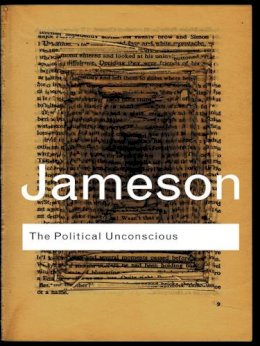
Stock image for illustration purposes only - book cover, edition or condition may vary.
The Political Unconscious: Narrative as a Socially Symbolic Act
Fredric Jameson
€ 22.12
FREE Delivery in Ireland
Description for The Political Unconscious: Narrative as a Socially Symbolic Act
Paperback. This ground-breaking and influential study explores the complex place and function of literature within culture. It takes its place as one of the most meaningful works of the twentieth century. Series: Routledge Classics. Num Pages: 320 pages, black & white illustrations. BIC Classification: DSK; HPCF7; JPA. Category: (P) Professional & Vocational; (UP) Postgraduate, Research & Scholarly; (UU) Undergraduate. Dimension: 198 x 129 x 24. Weight in Grams: 342.
In this ground-breaking and influential study Fredric Jameson explores the complex place and function of literature within culture. At the time Jameson was actually writing the book, in the mid to late seventies, there was a major reaction against deconstruction and poststructuralism. As one of the most significant literary theorists, Jameson found himself in the unenviable position of wanting to defend his intellectual past yet keep an eye on the future. With this book he carried it off beautifully. A landmark publication, The Political Unconscious takes its place as one of the most meaningful works of the twentieth century.century.
Product Details
Publisher
Taylor & Francis Ltd United Kingdom
Number of pages
320
Format
Paperback
Publication date
2002
Series
Routledge Classics
Condition
New
Weight
337g
Number of Pages
320
Place of Publication
London, United Kingdom
ISBN
9780415287517
SKU
V9780415287517
Shipping Time
Usually ships in 4 to 8 working days
Ref
99-14
About Fredric Jameson
Fredric Jameson (1934-). Professor of Comparative Literature at Duke University and one of the most provocative and influential cultural critics of our age.
Reviews for The Political Unconscious: Narrative as a Socially Symbolic Act
'Every now and then a book appears which is literally ahead of its time ...The Political Unconscious is such a book ... it sets new standards of what a classic work is.' - Slavoj Zizek
